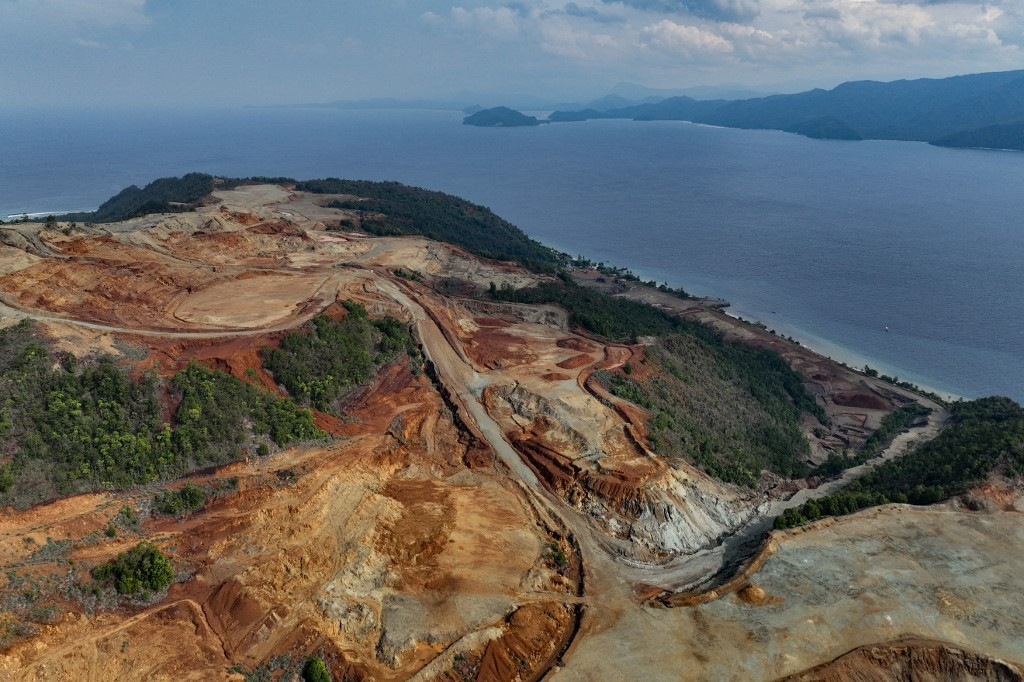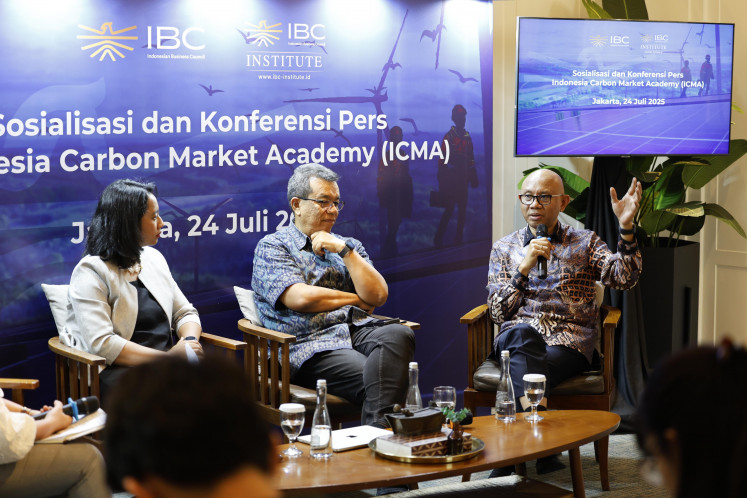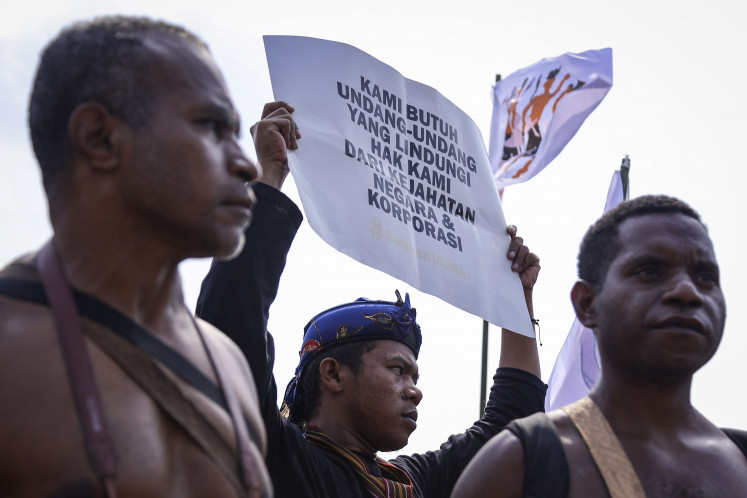Popular Reads
Top Results
Can't find what you're looking for?
View all search resultsPopular Reads
Top Results
Can't find what you're looking for?
View all search resultsRaja Ampat’s nickel paradox: When green ambitions threaten blue paradise
Who benefits from mining in Raja Ampat? The communities who have fished these waters for centuries, or the elites and investors far removed from the consequences of ecological collapse?
Change text size
Gift Premium Articles
to Anyone
R
aja Ampat is not just a geographic location. It is one of Earth's last marine Edens. Home to over 1,500 species of fish, three-quarters of all known coral species and unique migratory routes of manta rays and whale sharks. But beneath its shimmering waters, a new threat is rising from the land: The aggressive expansion of nickel mining.
Ironically, this expansion is justified in the name of the green transition. But when a transition toward sustainability undermines one of the planet’s most fragile ecosystems, it becomes not a solution but a contradiction.
Nickel is indispensable for lithium-ion batteries and the global shift toward decarbonization. Indonesia, home to the world’s largest nickel reserves, is racing to become a critical player in this supply chain. Yet this ambition has come at a grave cost to ecological integrity.
Between 2020 and 2024, satellite and field investigations show that nearly 500 hectares of forest and coastal areas across Kawe, Gag and surrounding islands have been cleared for mining operations, often without meaningful consultation with local communities and in violation of spatial planning laws.
Several mining companies, PT Gag Nikel and PT Anugerah Surya Pratama among them are under investigation for environmental permit breaches, encroachment on protected zones and improper waste handling.
The stakes are colossal. Sediment runoff from mining has already clouded coral reefs, disrupting symbiotic ecosystems that have evolved over millennia. UNESCO-designated biodiversity zones are at risk of irreversible damage.
More worryingly, these operations are occurring in direct contravention of a 2023 ruling by the Constitutional Court, which reaffirmed the principle that small islands defined as less than 2,000 square kilometers, must be protected from extractive activities that could jeopardize their ecological and social resilience.



















